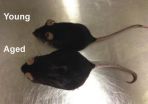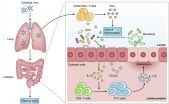(Press-News.org) CHICAGO (November 3, 2014): Researchers from the University Health Network in Toronto are hoping to improve the operational efficiency of bariatric surgery programs to increase access to care. Studies have shown that bariatric operations can alleviate chronic health issues like diabetes and arthritis for extremely obese people. Now the University Health Network researchers are trying to determine why many patients who are referred for a bariatric operation do not ultimately have the procedure performed, despite being in a publicly funded health care program. Findings from their single-site study are published in the November issue of the Journal of the American College of Surgeons.
For people who are severely obese, bariatric operations can provide a "treatment modality for obesity," the study authors noted. Severe obesity means the person has a basal metabolic index (BMI) of 40 or greater. That's about 240 lbs for a 5-foot, 5-inch person, according to the U.S. Center's for Disease Control BMI calculator.
"We often see patients who are older in life come to us with a spectrum of co-morbidities, like diabetes and osteoarthritis, as a result of their obesity," said Fayez Quereshy, MD, MBA, FRCSC, staff surgeon at the University Health Network in Toronto and a senior author on the study. Osteoarthritis, in particular, can make exercise-induced weight loss difficult because patients are often in too much pain to exercise,. People with a BMI of 35 or higher may also be candidates if they also have one or more chronic conditions. The person's primary care physician may refer him or her for a bariatric surgical procedure for those reasons.
At the University Health Network's program, patients then go through several assessments, including an orientation followed by a nursing consultation, a nutrition class and dietician assessment, and an evaluation by a social worker. They are then evaluated by a psychologist and have a final consultation with the surgeon before actually undergoing the procedure. At each of these steps in the process, clinical experts evaluate whether the patient is a candidate for the procedure.
However, many patients don't make it through the orientation process. Dr. Quereshy and his colleagues collaborated with University of Toronto's Rotman School of Management to identify which patients were more likely to quit the program and when.
The researchers analyzed data on 1,644 patients who were referred to the university's bariatric surgery program between June 2008 and July 2011. Among them, only 45 percent actually became bariatric surgical patients. Among those who didn't, 30 percent didn't even make it to the patient orientation session, the first step after getting the physician referral.
But it's not because patients are being turned away. "...The majority of attrition appears to be the result of patient self-removal," the authors wrote.
Least Likely Candidates
The patients who were least likely to have the operation included:
Men—Male patients were half as likely as female patients to complete the assessments en route to having the operation performed, even if they attended the orientation. "This finding was surprising because many of the male patients had higher BMIs than the female patients," Dr. Quereshy said.
Less obese patients—Patients with a BMI of 35 to 40 were also more likely to drop out, especially after the orientation or the nutritional assessment. Those with a higher BMI of 40 to 49 were 1.5 times more likely to undergo the operation than those with a lower BMI.
Smokers—Active smokers were 10 percent more likely to drop out after the social work assessment and 26 percent more likely to drop out after the nutrition evaluation than non-smokers. Dr. Quereshy said the fact that smokers were even referred to the program suggests that more education is needed among referring physicians. Smokers generally do not qualify as candidates for bariatric operations because they tend to suffer more complications during and after the procedure.
Older patients—Patients who were age 60 or older were also 54 percent less likely to undergo the surgical procedure than younger patients. They were more likely to leave the program after orientation or after the surgical consultation, which typically is the final step before the operation.
Next Steps
For this Canadian study, payment is not an issue, since the authors studied surgical candidates for these procedures in a publicly funded program. So Dr. Quereshy said that the next step is to ask one question about the patients who drop out: Why? This step includes qualitative research to understand which factors lead candidates to not have the operation. Knowing why patients drop out could save resources for the hospital and prevent disappointment for the patients.
Dr. Quereshy and his colleagues are currently testing whether a 40-question patient survey, to be completed before orientation, will help identify patients at risk for not having the operation. Then, the evaluation experts can get the patient the proper support upfront to help them through the process to the procedure. "If a patient has signs and symptoms of depression, for example," Dr. Quereshy said, "we can make sure he or she sees the psychiatrist first."
In addition to saving hospital resources, this step could also prevent patients from experiencing a disappointing blow. "This operation is not a cosmetic procedure. It is medically necessary to help with other significant medical issues," Dr. Quereshy said. "Imagine being told after a year, 'Sorry, you're actually not a candidate.' If that's going to happen, I'd rather tell the patient at day 10, rather than at day 300."
INFORMATION:
Adam Diamant, MSc, Joseph Milner, PhD, Michelle Cleghorn, MSc, Sanjeev Sockalingam, MD, FRCPC, Allan Okrainec, MD, MHPE, FRCSC, FACS, Timothy D Jackson, MD, MPH, FRCSC, FACS, also participated in this study.
Citation: Journal of the American College of Surgeons, November 2014: Vol. 219 (5) 1047-1055.
About the American College of Surgeons
The American College of Surgeons is a scientific and educational organization of surgeons that was founded in 1913 to raise the standards of surgical practice and improve the quality of care for all surgical patients. The College is dedicated to the ethical and competent practice of surgery. Its achievements have significantly influenced the course of scientific surgery in America and have established it as an important advocate for all surgical patients. The College has more than 79,000 members and is the largest organization of surgeons in the world. For more information, visit http://www.facs.org.
Virginia Commonwealth University (VCU) Massey Cancer Center researchers have developed the first and only tool that can accurately measure cancer health literacy (CHL) and quickly identify patients with limited CHL. This tool has the potential to improve communication and understanding between physicians and patients, which, in turn, could lead to better clinical outcomes.
Recently published in the Journal of Health Communications, the Cancer Health Literacy Study was conducted over four years and involved 1,306 African-American and Caucasian patients from Massey and ...
San Diego — A nasal vaccine in development by researchers at The University of Texas at Austin has been shown to provide long-term protection for non-human primates against the deadly Ebola virus. Results from a small pre-clinical study represent the only proof to date that a single dose of a non-injectable vaccine platform for Ebola is long-lasting, which could have significant global implications in controlling future outbreaks. This work is being presented Nov. 5 at the 2014 American Association of Pharmaceutical Scientists (AAPS) Annual Meeting and Exposition, ...
AUGUSTA, Ga. – Fat and sugar aren't usually considered healthy staples, but scientists have found that a biological fat with a sugar attached is essential for maintaining the brain's store of stem cells.
Neural stem cells help the brain develop initially, then repopulate brain cells lost to usual cell turnover as well as to a trauma or malady, such as a head injury or stroke.
While the cell population and activity decrease as a natural part of aging, scientists at the Medical College of Georgia at Georgia Regents University are studying how neural stem cells ...
The school environment in which teachers work is related to their expectations of students, according to a new study by researchers at the University of Montreal. "It is known that low teacher expectations are negatively associated with student achievement and school effectiveness. While we know that expectations are primarily determined by the specific characteristics of teachers, we have shown that the school environment also plays a determining role," says lead author of the study, Marie-Christine Brault, a post-doctoral researcher at the university's Institut de recherche ...
What we believed as children about the soul and the afterlife shapes what we believe as adults – regardless of what we say we believe now, according to a new Rutgers study.
"My starting point was, assuming that people have these automatic – that is, implicit or ingrained – beliefs about the soul and afterlife, how can we measure those implicit beliefs?," said Stephanie Anglin, a doctoral student in psychology in Rutgers' School of Arts and Sciences.
Her research, "On the Nature of Implicit Soul Beliefs: When the Past Weighs More Than the Present," ...
TORONTO, ON, Nov. 3, 2014 — Women who have been previously hospitalized for bipolar disorder are nearly twice as likely to have premature babies compared to women without a history of mental illness, according to a new study by researchers at Women's College Hospital and the Institute for Clinical Evaluative Sciences (ICES).
The study, published today in the American Journal of Obstetrics and Gynecology, shows pregnant women with bipolar disorder are at greater risk of having premature babies and other serious complications. While the study did not examine the ...
Today's natural resource manager tending to the health of a stream in Louisiana needs to look upstream. Way upstream - like Montana. Michigan State University (MSU) scientists have invented a way to more easily manage the extensive nature of streams.
There are 2.6 million stream reaches in the contiguous United States that are intricately interconnected. It's impossible to address the health of one reach without knowing what's happening upstream.
Science, wielding geographic information systems, has obliged with data on geology, climate, pollution and land use. But ...
Packing on the pounds may lead to dangerous inflammation in response to anti-cancer treatment, according to a study by William Murphy and colleages at UC Davis. The study, published in The Journal of Experimental Medicine, shows that overweight mice develop lethal inflammation in response to certain anti-cancer therapies, suggesting a possible link between body weight and adverse side effects in cancer patients treated with similar protocols.
Cancer treatment has been revolutionized by new approaches aimed at stimulating the body's own immune system to fight off tumor ...
Flu infection has long-ranging effects beyond the lung that can wreak havoc in the gut and cause a dreaded symptom, diarrhea, according to a study published in The Journal of Experimental Medicine.
Gastrointestinal symptoms are often seen with flu infection, but because the virus only grows in lung cells, it's unclear how intestinal symptoms develop. Researchers in China now show that flu infection in mice prompts responding immune cells in the lung to alter their homing receptors, causing them to migrate to the gut. Once there, they produce the antiviral mediator IFN-γ, ...
(SACRAMENTO, Calif.) — Immunotherapy that can be effective against tumors in young, thin mice can be lethal to obese ones, a new study by UC Davis researchers has found. The findings, published online today in The Journal of Experimental Medicine, suggest a possible link between body fat and the risk of toxicity from some types of immunotherapy.
The study comes at a time of great excitement about immunotherapy drugs, which are being developed and used increasingly against cancer, particularly in melanoma and kidney and prostate cancers.
Immunotherapies use immune ...



